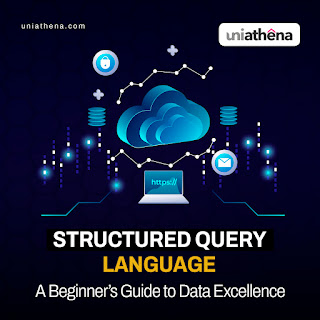The Ultimate Guide to Transportation Management: Navigating the Complexities for Efficiency and Profitability
Transportation is the backbone of global commerce and the only way to get goods and services across borders. Route planning, shipment forwarding, and legal compliance are all important aspects of this area. However, what is it that makes Transport Management so significant? How can firms use their competitive edge? This guide into the world of transportation management will teach you different strategies you may use to better understand this complex discipline. In addition, you will also learn about the significance of taking a Transport Management Course.
Fundamentals of Transportation Management
Transport management is the act of designing, carrying out, and refining the process of moving goods and people. It determines which transport mode (whether by road, rail, air or water), freight type, speed, and costs are most effective.
Transportation Planning and Routing: Effective routing and scheduling are essential in achieving cost savings in transportation, delivering products to customer’s doorsteps on time, and utilizing the available software and algorithms.
Cargo management: It involves selecting carriers, tracing shipments, and documenting them. A decent amount of knowledge about shipment types, prices, and carrier capabilities is required.
Warehouse Management: Transportation and warehousing go hand in hand. Effective warehouse management, from inventory handling and order fulfillment to cross-docking, will serve as a proper system for maintaining the flow of goods through the supply chain.
Technology in Transportation Management
Technology has revolutionized the transportation industry, enabling businesses to streamline operations, improve visibility, and make more informed choices.
Transportation Management Systems: Transportation management systems automate and optimize various transportation processes, such as selecting carriers, scheduling loads, cargo auditing, and payment. Investing in a robust TMS can lead to significant cost savings and improved efficiency.
Telematics and GPS Tracking: Telematics and GPS tracking enable the trackability of shipments, hence offering key location-based information about the goods in transit. Telematics can help to make drivers more comfortable and fuel-efficient and help them drive safer.
Blockchain for Transportation: Blockchain is a secure, transparent way to record and share information throughout the supply chain. It smoothes procedures, reduces fraud, and improves traceability.
Emerging Technologies: Artificial Intelligence, Machine Learning, and the Internet of Things are changing the face of transport management. AI algorithms can perform route optimization and demand prediction, while IoT sensors monitor cargo conditions and provide real-time alerts.
Future Trends in Transportation Management
The transportation industry is constantly changing with technological advancements and changing consumer preferences.
Autonomous Vehicles: Self-driving trucks and drones would be key to solving the logistical problems of reducing labor costs and improving safety and efficiency.
Electrification: Businesses are quickly moving to electric vehicles as a means of reducing carbon emissions and meeting environmental regulations.
Urban Mobility: Significant concerns about traffic and pollution accompany urban mobility. The emergence of innovative solutions like ride-sharing, micro-mobility, and intelligent traffic management is helping to overcome these issues.
Last-Mile Delivery: This last mile of delivery to customer’s doorsteps can often be the most expensive and complicated. Companies are testing different models for the last mile of delivery, such as drones, and autonomous robots, options.
UniAthena’s Transport and Logistics Course
This free online course on Transportation and Logistics will introduce you to the sector from a global perspective. It will cover characteristics of the world transportation system, INOC terminology, and the detailed basics of logistics. This course is developed for professionals and hence has flexible timings with self-paced learning within 1-2 weeks. Learn how to lead, plan, and manage transportation and logistic networks and apply theory to practical situations. Register today and get a chance to earn a Blockchain-verified certification upon completion. Enroll now!




Comments
Post a Comment